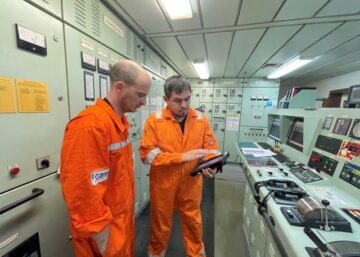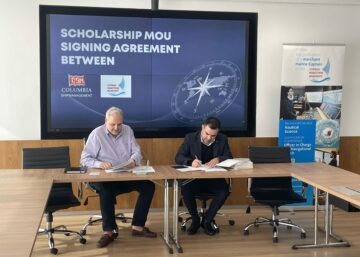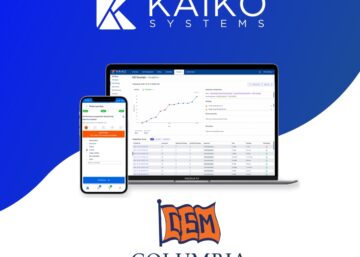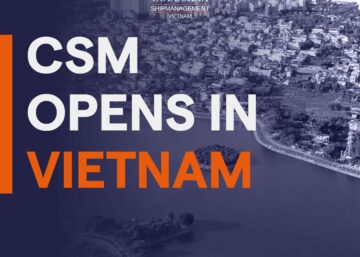As part of its bid to attract more women into the maritime sector, shipmanangement giant Columbia Group has launched a mentoring programme aimed at female cadets.
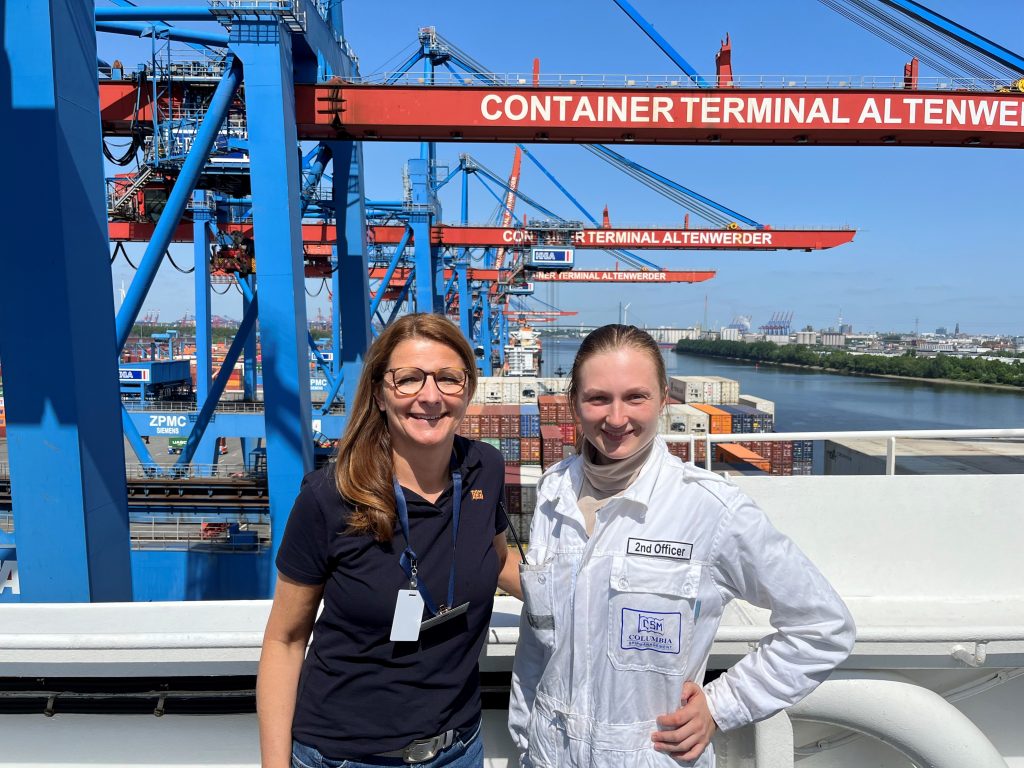
Recognising that the industry is missing out on a great deal of female talent the group hopes that the mentoring programme will not only attract more females onboard vessels, but help to retain them in the industry past cadetship, especially when faced with a number of career challenges such as the flexibility needed for juggling work and home life.
“We need to change the culture in the industry surrounding women and make it more viable for them to have a career in maritime, so that we can attract and widen the pool of talent that we draw from,” said programme leader Claudia Paschkewitz, Columbia Group’s managing director of sustainability, diversity and inclusion.
The programme acknowledges evidence from a 2019 Solent University report which highlights that mentoring schemes are also able to reduce costs related to health and safety, as well as decreasing staff turnover.
Columbia is drawing on the services of corporate wellbeing provider OneCare Solutions (OCS) for training of the programme’s mentors, who will be senior female colleagues based in different departments onshore. Each will be trained to deal with situations such as sexual harassment and bullying, and assigned to one female cadet in the fleet for their whole 12 months of sea service.
Harassment remains a widespread problem in shipping with the Danish government recently issuing a report that found a sixth of the 3,500 seafarers polled had witnessed incidents of bullying or sexual harassment on Danish ships over a 12-month period.
Women make up just 1.2% of the 1.89m seafarers globally, according to a 2021 report by BIMCO and the International Chamber of Shipping.
A study conducted by the All Aboard Alliance published in April revealed 15 key pain points for women at sea. The research is the first to emerge from the Diversity@Sea workstream, which seeks to investigate how to make a career at sea more diverse, inclusive, and appealing to a broader pool of talent.
The 15 main issues have been divided into four categories, the first being the difficulty of succeeding professionally at sea for women (being perceived as less competent than male coworkers, not having equal access to training or tasks onboard, and having to outperform male peers to get respected or promoted).
Another category identified involves how social relations onboard can be especially challenging for women at sea (feeling isolated or unsupported because of their gender, the concern of gossip or rumours, or power abuse or sexual harassment and sexual misconduct onboard).
The third category of pain points relates to systemic employment challenges at sea (service contracts at sea being too long, lack of family planning options such as maternity leave or sea-shore rotation programmes, resulting in many women having to choose between a career at sea OR starting a family, in turn pushing women seafarer to find employment elsewhere, and finally, many companies still not willing to recruit women seafarers).
The final category relates to the physical conditions onboard (lack of access to female sanitary products onboard or lack of access to adequately fitted Personal Protective Equipment (PPE) such as boiler suites, fire gloves etc., or lack of access to designated women’s changing rooms and bathrooms onboard).
The challenges were identified from an analysis of interviews with 115 women seafarers from all ranks and geographies serving onboard vessels. The majority of the interviewees (59%) were women with the rank of one stripe.
When asked about their preferred ratio of women colleagues onboard, the women seafarers interviewed had vastly different preferences. Responses ranged from 10% to 75% and from 1 to 10 women, respectively, while one in five women seafarers had no preferred gender ratio. Many of the women interviewed emphasised the importance of having women senior officers onboard.
